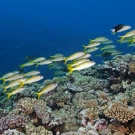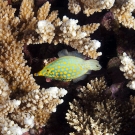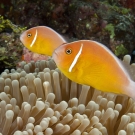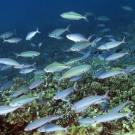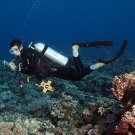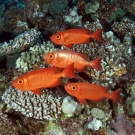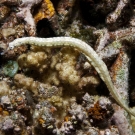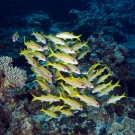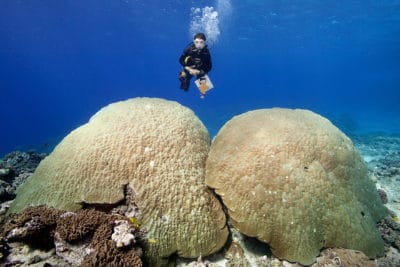
As a marine scientist, visiting the Kingdom of Tonga to study the coral reefs was a treat. We observed so many beautiful marine animals and habitats that were unlike anywhere else on the Global Reef Expedition. One of my favorite sites was in Vava’u where there were massive Porites corals the size of cars that dwarfed the divers. It was incredible.
However, what I found most surprising was the fish communities. While the coral communities in Tonga were in moderate condition, I was concerned about the lack of large fish we observed. The fish we did see were small, mostly falling into the 11-20cm size classes.
Small fish typically fall into lower trophic categories, playing an important role in maintaining a stable reef ecosystem. They most often eat fleshy algae that can take up valuable space for coral recruits to settle and grow. Though, larger fish play a vital role in the ecosystem as well. The larger fish frequently fall into the higher trophic categories, helping to maintain a balanced fish community, preying on smaller fish and invertebrates, as well as algae. Without larger fish, an unstable fish and reef community will likely result.
Coral Reef Fish in Tonga
Ecosystem stability is essential for coral reefs with nearly every organism playing an important role. Corals provide shelter for small fish and invertebrates, including juvenile stages of the larger fish species, small fish and invertebrates help manage algal growth with larger fish acting as controls on the smaller fish populations, preventing them from becoming overabundant, and algae acts as a food source with some species acting as a settlement site for coral recruits. This fragile ecosystem is vulnerable to collapse when a shift in the organisms found within it occurs.
Learn more
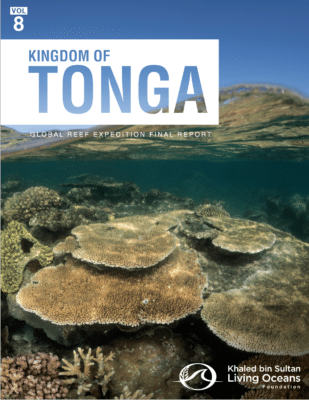 For more detailed information on our surveys of coral reef fish in Tonga, read our latest publication, the Global Reef Expedition: Kingdom of Tonga Final Report.
For more detailed information on our surveys of coral reef fish in Tonga, read our latest publication, the Global Reef Expedition: Kingdom of Tonga Final Report.
